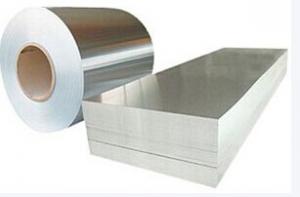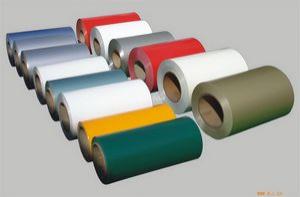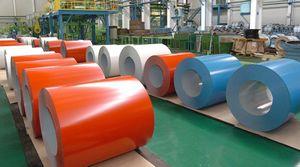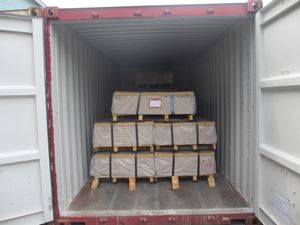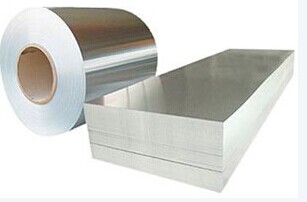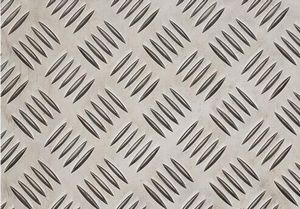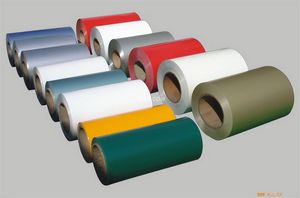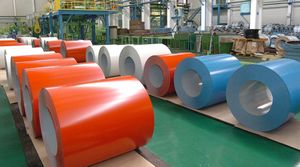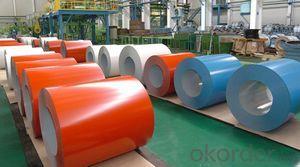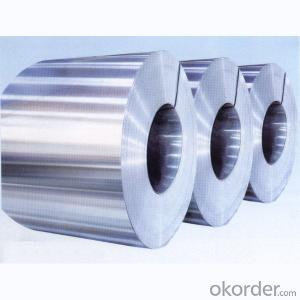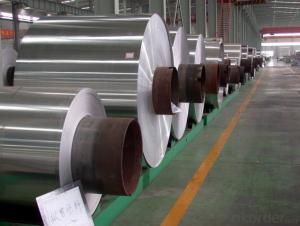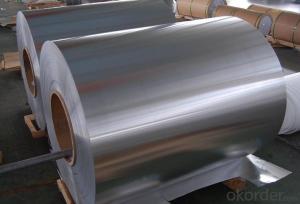AA 2020 6061 Aluminum Coils for Sale
- Loading Port:
- China Main Port
- Payment Terms:
- TT OR LC
- Min Order Qty:
- -
- Supply Capability:
- -
OKorder Service Pledge
Quality Product, Order Online Tracking, Timely Delivery
OKorder Financial Service
Credit Rating, Credit Services, Credit Purchasing
You Might Also Like
supply Mill-finished / coated aluminum plate/sheet/ coil:
Alloy: AA1050,1060,1100,1200,2024,3003,3304,3005,3015,5052,5086,5754,5083,6061,7050,7475,8011, etc
Temper: O, H14/16/18/22/24/32/ H112/H321/T6,T851,T7451,T7351, etc
Thickness: 0.02mm—20mm
Width: 100mm—2000mm (Can be slitted)
Notice: PE coating / PVDF coating / Embossment can be done if required.
Alloy: AA1050,1060,1100,1200,2024,3003,3304,3005,3015,5052,5086,5754,5083,6061,7050,7475,8011, etc
Temper: O, H14/16/18/22/24/32/ H112/H321/T6,T851,T7451,T7351, etc
Thickness: 0.02mm—20mm
Width: 100mm—2000mm (Can be slitted)
Notice: PE coating / PVDF coating / Embossment can be done if required.
- Q: This question asks for criteria or methods to determine if an aluminum coil is of high quality.
- <p>To identify a high-quality aluminum coil, consider the following factors: purity level, which should be 99.5% or higher for most applications; surface finish, ensuring it's smooth and free from defects; thickness consistency, which should be uniform across the entire coil; mechanical properties, such as tensile strength and elongation, that meet industry standards; and adherence to specific alloy grades for particular applications. Additionally, check for certifications from recognized standards organizations and consider the supplier's reputation for quality and consistency.</p>
- Q: Is there any specific legislation or rules governing the use of aluminum coils in public areas?
- <p>There are no universal special regulations for using aluminum coils in public places. However, regulations can vary by country, state, or even city. In some cases, building codes or safety regulations might dictate the use of certain materials, including aluminum coils, in construction or other applications within public spaces. It's important to check local regulations and guidelines to ensure compliance when using aluminum coils in public areas.</p>
- Q: What are the thermal conductivity properties of aluminum coils?
- Aluminum coils have excellent thermal conductivity properties. Aluminum is known for its high thermal conductivity, meaning it can effectively transfer heat. This makes aluminum coils ideal for applications that require efficient heat transfer, such as in air conditioning and refrigeration systems. The thermal conductivity of aluminum coils allows for quick and effective cooling or heating, resulting in energy efficiency and enhanced performance. Additionally, aluminum's good thermal conductivity ensures that heat is evenly distributed across the coil, preventing hotspots and ensuring uniform temperature distribution. Overall, the thermal conductivity properties of aluminum coils make them a preferred choice for various heat transfer applications.
- Q: How do aluminum coils contribute to sustainable packaging?
- Aluminum coils play a significant role in promoting sustainable packaging practices. Firstly, aluminum is an infinitely recyclable material, meaning it can be recycled repeatedly without losing its properties or quality. This feature enhances the sustainability of packaging as it reduces the need for extracting and processing virgin materials, thereby conserving natural resources and minimizing the environmental impact associated with mining and production. Moreover, aluminum coils offer exceptional barrier properties, effectively protecting the packaged goods from external factors such as moisture, light, and oxygen. This barrier function helps to extend the shelf life of products, reducing food waste and preventing the need for additional packaging or preservatives. By keeping products fresh for longer periods, aluminum coils contribute to sustainable packaging by supporting efforts to combat food loss and promote resource efficiency. Furthermore, aluminum is lightweight, making it an ideal material for packaging. Its low weight allows for reduced transportation costs and energy consumption during shipping, contributing to overall carbon emissions reduction. The lightweight nature of aluminum coils also makes them convenient for end consumers, reducing the environmental impact associated with disposal and recycling. Additionally, aluminum is highly durable and resistant to corrosion, ensuring the integrity of the packaging throughout its lifecycle. This durability means that aluminum coils can be reused or repurposed, further reducing waste and extending the material's lifespan. In summary, the use of aluminum coils in packaging promotes sustainability in multiple ways. It contributes to a circular economy by being infinitely recyclable, reduces food waste through effective barrier properties, lowers carbon emissions through lightweight design, and encourages reuse and repurposing due to its durability. By incorporating aluminum coils into packaging solutions, we can make significant strides towards achieving a more sustainable and environmentally friendly packaging industry.
- Q: What are the common surface finishes for aluminum coils in the automotive industry?
- In the automotive industry, aluminum coils are widely used for various applications due to their lightweight, high strength, and corrosion resistance properties. To enhance their appearance and protect them from environmental factors, aluminum coils in the automotive industry often undergo surface finishes. One of the most common surface finishes for aluminum coils in the automotive industry is anodizing. Anodizing is an electrochemical process that creates a thin protective layer on the surface of the aluminum coil. This finish not only provides excellent corrosion resistance but also allows for color customization, making it a popular choice for automotive applications. Anodized aluminum coils can be found in various colors and finishes, adding aesthetic appeal to the vehicles. Another commonly used surface finish for aluminum coils in the automotive industry is powder coating. Powder coating involves applying a dry powder paint onto the surface of the aluminum coil and then curing it under heat to create a durable, long-lasting finish. Powder coating provides excellent resistance to chipping, scratching, and fading, making it ideal for automotive components that are exposed to harsh conditions and require a high level of durability. Additionally, powder coating offers a wide range of color options, allowing manufacturers to achieve the desired aesthetic appearance. Furthermore, aluminum coils in the automotive industry may also undergo other surface finishes such as laminating, painting, or polishing, depending on the specific application requirements. Laminating involves bonding a thin protective film onto the surface of the aluminum coil to provide additional protection against abrasion and chemical exposure. Painting involves applying liquid paint onto the surface of the aluminum coil, allowing for customization and protection against corrosion. Polishing is a mechanical process that enhances the surface smoothness and appearance of the aluminum coil, providing a reflective and shiny finish. In summary, the common surface finishes for aluminum coils in the automotive industry include anodizing, powder coating, laminating, painting, and polishing. These finishes not only enhance the appearance of the aluminum coils but also provide protection against corrosion, abrasion, and other environmental factors, making them essential in the manufacturing of automotive components.
- Q: Are aluminum coils suitable for insulation applications?
- No, aluminum coils are not suitable for insulation applications.
- Q: Can aluminum coils be used in automotive applications?
- Automotive applications can indeed utilize aluminum coils. Given their lightweight nature, aluminum coils prove to be an exceptional option for automotive manufacturers, aiding in the reduction of overall vehicle weight. Consequently, this reduction can lead to enhanced fuel efficiency and performance. In addition, the outstanding heat conductivity of aluminum coils becomes indispensable in automotive applications, particularly when it comes to heat dissipation. Furthermore, the commendable corrosion resistance of aluminum coils proves to be highly advantageous in automotive applications, specifically when vehicles are exposed to diverse weather conditions and road salts. All in all, the utilization of aluminum coils in automotive applications offers numerous benefits, including weight reduction, improved fuel efficiency, superior heat dissipation, and enhanced corrosion resistance.
- Q: How does the gauge of aluminum coils affect their performance?
- The gauge of aluminum coils directly influences their performance. Thicker gauge coils are more durable and resistant to physical damage, making them suitable for heavy-duty applications that require high strength and durability. On the other hand, thinner gauge coils are lighter and more flexible, making them more suitable for applications that require flexibility and ease of bending. Additionally, the gauge also affects the thermal conductivity and electrical resistance of the coils, with thinner gauges offering higher conductivity. Therefore, the gauge of aluminum coils plays a crucial role in determining their performance characteristics and suitability for specific applications.
- Q: What is the cost of aluminum coils compared to other metals?
- The price of aluminum coils can change depending on various factors such as market demand, availability, and current economic conditions when compared to other metals. Generally, aluminum is considered to be more affordable in comparison to metals like copper or stainless steel. Due to its lightweight, resistance to corrosion, and excellent thermal conductivity, aluminum is extensively used in different industries. It is the preferred choice for applications in construction, automotive, aerospace, and electrical industries. When compared to copper, aluminum typically has a lower cost per pound. However, it is important to note that copper is highly regarded for its superior electrical conductivity and is often favored in specific applications where electrical performance is crucial. In contrast, stainless steel is generally pricier than aluminum. Stainless steel provides exceptional resistance to corrosion and durability, making it suitable for applications that require high strength and the ability to withstand harsh environments. In conclusion, when considering the cost of aluminum coils in relation to other metals, aluminum is frequently a more cost-effective option. Nevertheless, it is crucial to evaluate the specific requirements and performance characteristics needed for a particular application in order to determine the most suitable metal choice.
- Q: What is the maximum operating temperature for aluminum coils?
- The specific grade of aluminum used typically determines the maximum operating temperature for aluminum coils. Generally, aluminum has a high melting point of approximately 660 degrees Celsius (1220 degrees Fahrenheit), allowing it to endure high temperatures without melting or distorting. For common grades of aluminum, the maximum operating temperature usually ranges from 200 to 300 degrees Celsius (392 to 572 degrees Fahrenheit). However, it is important to consider factors like coil thickness and the intended application, as these can affect the temperature range. In instances where higher temperatures are anticipated, it is advisable to employ aluminum alloys specifically engineered to withstand such conditions. Aluminum alloy 6061, for example, can tolerate maximum operating temperatures of up to 400 degrees Celsius (752 degrees Fahrenheit) or even higher. To guarantee safe operation within temperature limits, it is always recommended to consult the manufacturer's specifications and guidelines for the specific aluminum coils being utilized.
Send your message to us
AA 2020 6061 Aluminum Coils for Sale
- Loading Port:
- China Main Port
- Payment Terms:
- TT OR LC
- Min Order Qty:
- -
- Supply Capability:
- -
OKorder Service Pledge
Quality Product, Order Online Tracking, Timely Delivery
OKorder Financial Service
Credit Rating, Credit Services, Credit Purchasing
Similar products
Hot products
Hot Searches
Related keywords

